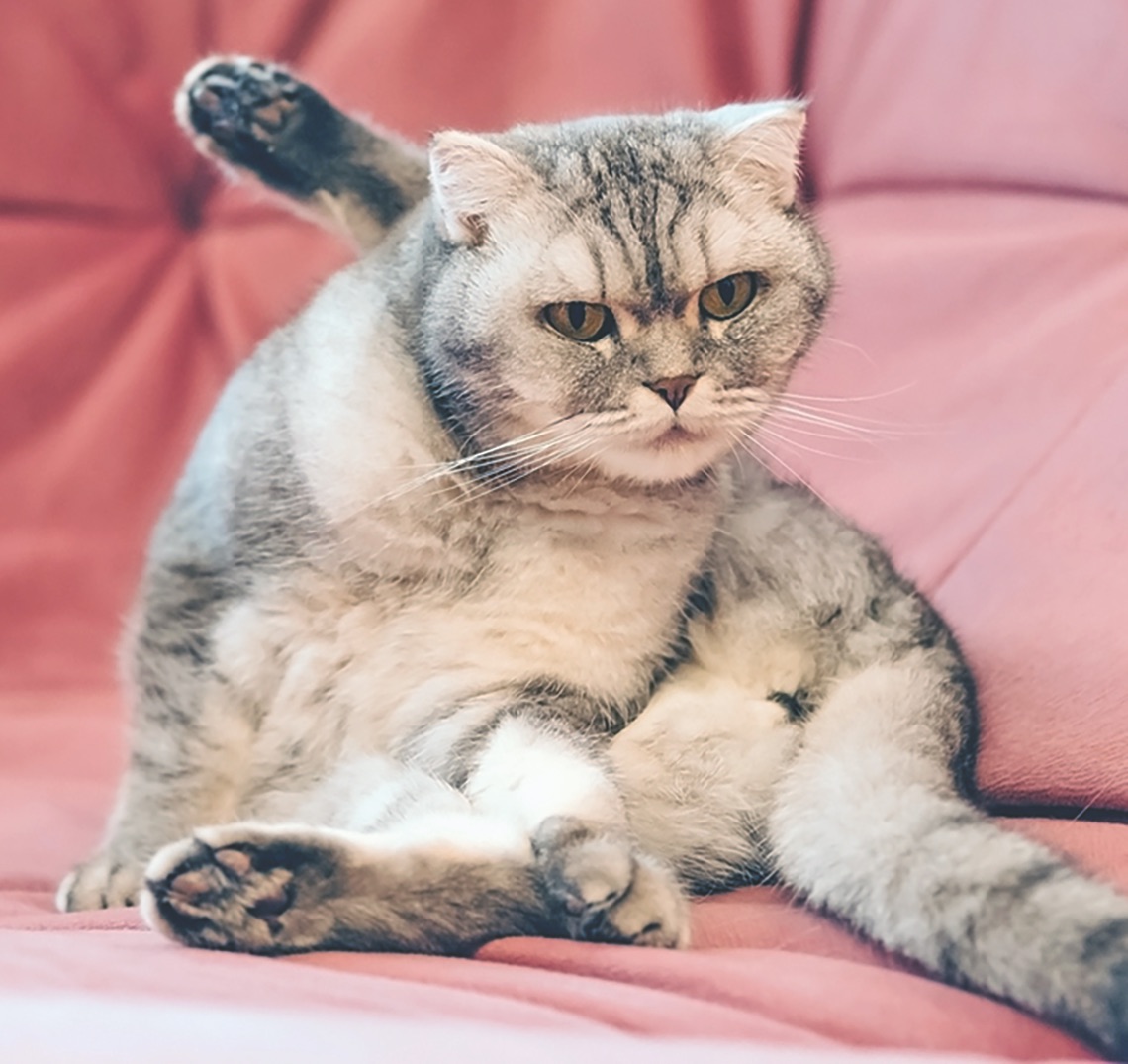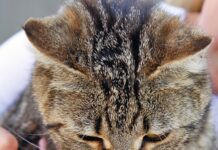Although cats aren’t the butt-scooters dogs can be when anal glands start to get backed up, the problem is just as worrisome. Anal glands are supposed to discharge that foul scent in small amounts with each bowel movement. If they don’t, the liquid builds up, and you could be facing some pretty unpleasant management tasks or, worse, surgery. By understanding what anal glands do and knowing early signs of dysfunction, you can keep your cat healthy, happy, and, well, less smelly.
“The most common predisposing factor for anal gland problems in cats is obesity. Other things that may predispose a cat to anal-gland issues are chronic soft stool and allergies,” says Julia E. Miller, DVM, assistant clinical professor, section of dermatology at Cornell University’s College of Veterinary Medicine.
When Things Get Abnormal
The anal glands are small scent glands/sacs located on either side of the anus. Normally, these glands have a thick liquid discharge that empties out a bit every time your cat has a bowel movement. The discharge contributes to the foul smell of feces and acts as a personal signature (“Fluffy was here”). Cats can also discharge anal glands when frightened.
If anal glands don’t empty regularly, they can become impacted. As the fluid builds, bacteria can grow, causing swollen, painful anal glands. You might notice a red area on either side of the anus, under her tail, or a hard swelling, possibly as big as a small marble. Some cats will stop using the litterbox to defecate as they associate the box with pain from trying to pass stool due to the swollen glands.
If you try to check the area, be prepared for even your sweetest cat to react with violence. Anal-gland abscesses hurt. Once the abscessed area opens and drains, there will be less pain, but there will be a purulent, foul discharge.
Rather than scooting like a dog, cats with anal-gland problems usually lick and chew around the anus—at least at first. If the glands become impacted and then infected, you may notice an open, oozing wound under your cat’s tail. And it’s usually painful.
Veterinary Intervention
With an impaction, the discharge thickens to a brown, foul paste that necessitates a visit to your veterinarian. For an impaction, your veterinarian will try to manually express the glands to relieve the pressure. You may be instructed to apply warm compresses for five to 10 minutes three to four times a day before your appointment, if you can, to make this procedure easier.
Your veterinarian will apply gentle pressure on the anal sacs from outside the rectum. Ideally, the contents will empty out, giving your cat relief. Obviously, this is not pleasant for your cat, but sedation is usually not required. If your cat has an abscess, however, sedation may be needed.
Cats with an anal-sac infection may require antibiotics. Home care such as warm compresses may be recommended if your cat will tolerate it. A ruptured anal-gland abscess is generally left open to heal with cleaning at home.
Prevention
Cats who are overweight or inactive have a greater risk for anal-gland problems as they are also more prone to constipation. If the cat isn’t passing feces, there is no pressure to help empty the glands. The same is true if your cat has soft stools that won’t put pressure on the glands.
You can minimize your cat’s chances of anal-gland problems by encouraging her to exercise using toys, play, or food puzzles. Serve her meals in one room but put her water bowl in another room and her litterbox in a third area, so that she must move around. Many cats will retrieve if you toss items like a crumpled ball of aluminum foil or a small stuffed toy. Chasing a wand with feathers is another way to get your cat moving.
Serve meals instead of free feeding to keep control of your cat’s weight. If you have multiple cats, watch while they eat to be sure no one is sneaking someone else’s leftovers. If your cat needs to diet, consult your veterinarian for a good plan. Cats who lose weight too rapidly can suffer potentially fatal liver problems.
Cats with chronic anal-gland problems may benefit from regularly scheduled veterinary appointments to have their glands expressed. Your veterinarian may show you how to do this at home if you are willing to learn.
If the problem is bad, surgery may be needed. Cats can do fine without anal glands, but surgery has side effects and can result in temporary or even permanent incontinence.
Knowing the early stages of anal-gland misfunction can help you avoid major issues like surgery. The sooner you notice your cat may have impacted glands, the easier your veterinarian can resolve the problem and suggest preventive steps, including weight control, activity (assuring adequate water intake), and adding some fiber to your cat’s diet.




